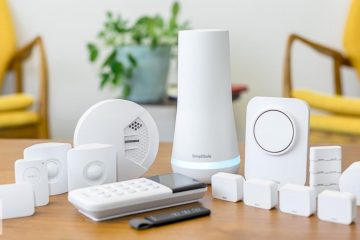When should PEP be started?
When should PEP be started?
PEP (post-exposure prophylaxis) means taking medicine to prevent HIV after a possible exposure. PEP should be used only in emergency situations and must be started within 72 hours after a recent possible exposure to HIV.
When should post exposure prophylaxis be administered?
PEP, or post-exposure prophylaxis, is a short course of HIV medicines taken very soon after a possible exposure to HIV to prevent the virus from taking hold in your body. You must start it within 72 hours (3 days) after a possible exposure to HIV, or it won’t work.
What is the first step in post exposure prophylaxis management?
PEP Step 1: Treat Exposure Site ® Use soap and water to wash areas exposed to potentially infectious fluids as soon as possible after exposure. ® Flush exposed mucous membranes with water. ® Flush exposed eyes with water or saline solution.
Can PEP be taken after 7 days?
PEP usually isn’t given more than 72 hours (3 days) after exposure as studies show it is unlikely to be effective. However, if you are unable to access PEP within the 72 hours, even if it has been up to 5-7 days since the exposure occurred, it is still worth seeking medical advice to see what your options are.
Is PEP effective after 60 hours?
Thus, even though PEP is often offered for up to 72 hours after exposure, it should be initiated as early as possible. After 72 hours, PEP is not effective, and there are gradations in efficacy from 24 hours postexposure, to 36, 48, and 72 hours.
Who needs post exposure prophylaxis?
Who needs PEP? PEP is used for anyone who may have been exposed to HIV during a single event. The risk of getting HIV infection in these ways is extremely low—fewer than 1 in 100 for all exposures.
How do you do post exposure prophylaxis?
PEP is available on the NHS for free, but is only given to people who meet guidelines about its use. The best place to get PEP is a sexual health or HIV clinic. If you need PEP over the weekend or outside of office hours, when clinics will often be closed, the best place to go is an Accident and Emergency department.
Does PEP weaken the immune system?
Does Pep lower your immune system? 32Theoretically, it is possible that these medications can weaken the immune system when utilized this manner and may actually increase that the threat of HIV disease if an exposure occurs. If danger of esophageal exposure is deemed high, research PEP for hepatitis.
Does PEP lower your immune system?
Can I infect my partner while on PEP?
No. Unsafe sex while taking PEP could let more HIV into your body, making PEP much more likely not to work. If after taking PEP someone’s stayed HIV negative and then has unsafe sex again, they can become infected just like any other HIV negative person.
What do you need to know about post exposure prophylaxis?
Post-Exposure Prophylaxis. Post-exposure prophylaxis, or PEP, is a way to prevent HIV infection after a recent possible exposure to the virus. Below, we share some important information about PEP from CDC: Date last updated: 6/6/2017.
When to take post exposure prophylaxis ( PEP ) for HIV?
PEP, or post-exposure prophylaxis, is a short course of HIV medicines taken very soon after a possible exposure to HIV to prevent the virus from taking hold in your body. You must start it within 72 hours (3 days) after a possible exposure to HIV, or it won’t work. Every hour counts! PEP should be used only in emergency situations.
How is zidovudine used as post exposure prophylaxis?
In the Centers for Disease Control and Prevention (CDC) Needlestick Surveillance Group study, use of zidovudine (as post-exposure prophylaxis [PEP]) by healthcare workers reduced the risk of HIV acquisition by 81% overall for percutaneous exposures [Cardo, et al. 1997].


